 i newspaper, July 14, 2017
i newspaper, July 14, 2017
‘Flounder’ means to move awkwardly or struggle, as in ‘he floundered in the mud’. The word required here is ‘founder’, meaning to sink or fail, as in ‘the relationship/project/ship foundered’.
 i newspaper, July 14, 2017
i newspaper, July 14, 2017
‘Flounder’ means to move awkwardly or struggle, as in ‘he floundered in the mud’. The word required here is ‘founder’, meaning to sink or fail, as in ‘the relationship/project/ship foundered’.

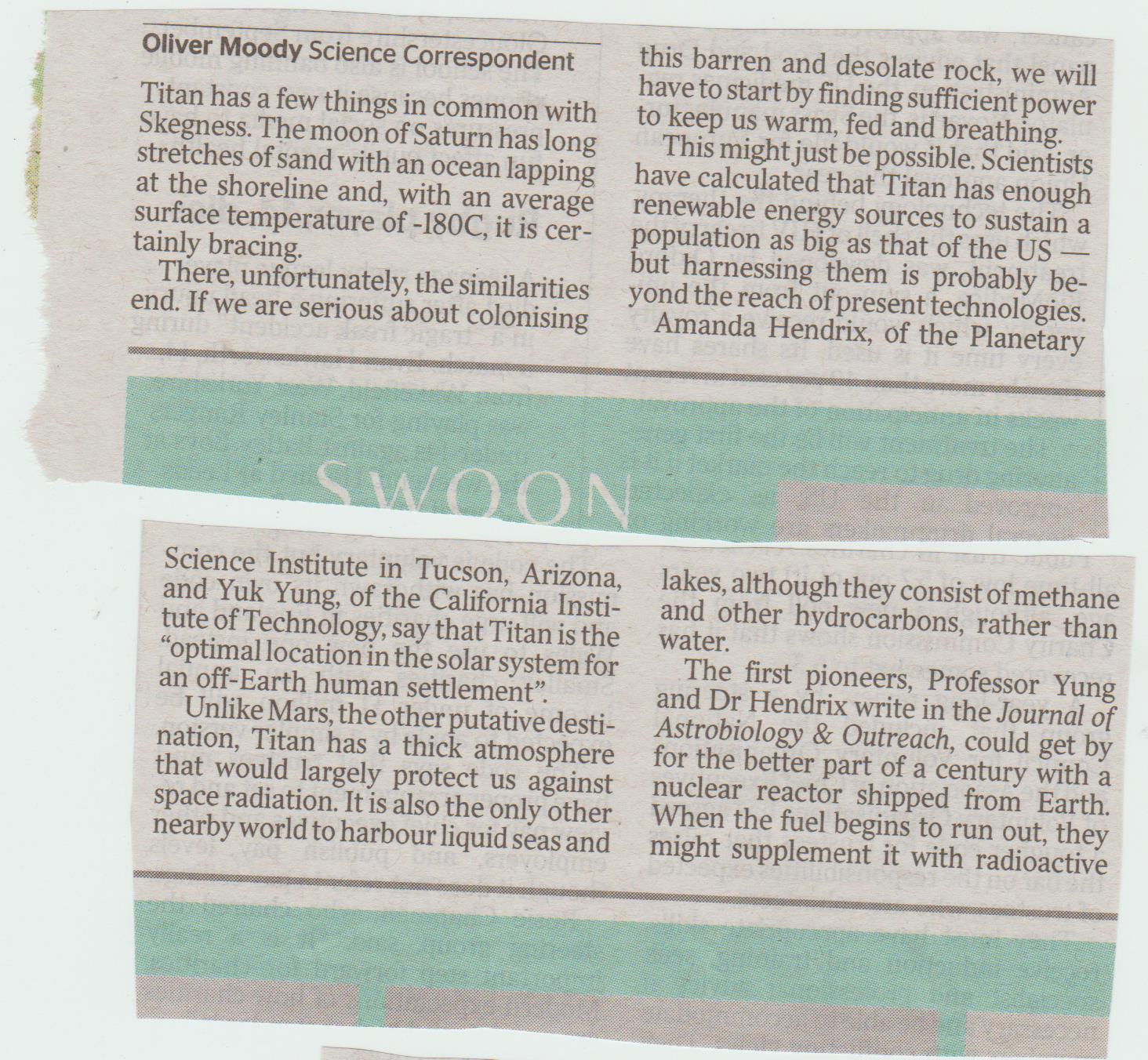
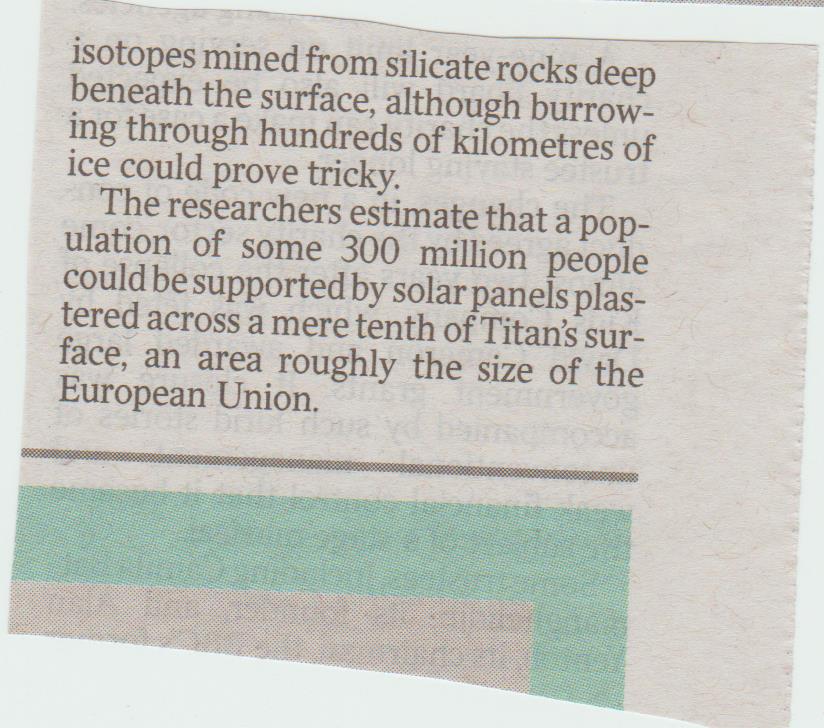 The Times, July 13, 2017
The Times, July 13, 2017
Q: What has Skegness to do with a story about the possibility of humans living on Titan?
A: Absolutely nothing. It is just another useless attempt at an ‘interesting’ intro.
Here we have a good story, that scientists believe 300million people (a figure left to the last par) could live on Titan. Why mess it up like this? What must Times readers think of this wretched guff?
I think the intro should be
Saturn’s moon Titan has the energy sources to support a human population of 300million, say scientists.
The story needs to say how far Titan is from Earth (varies between 745million miles and 1,025million miles) and how long it would take to get there (probably up to six years).
And what about the heading? ‘Over the moon’?! Honestly. Apart from anything else, according to the story the scientists do not think it will happen, so how can they be excited about it?
I suggest
The frozen moon that could be home to 300million of us
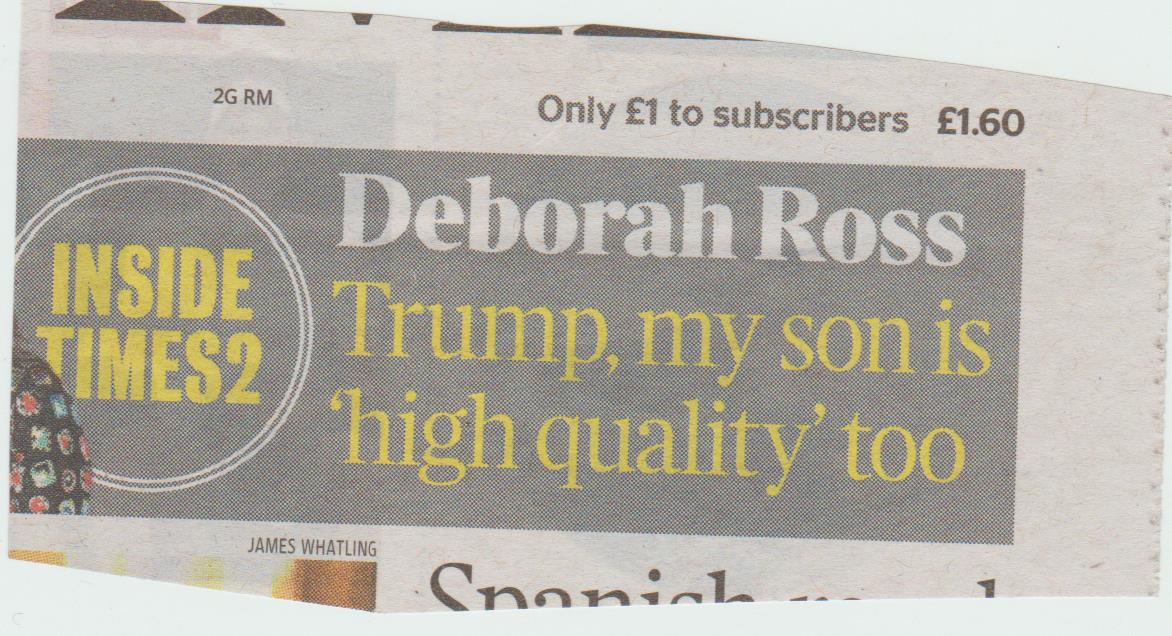 The Times, July 13, 2017
The Times, July 13, 2017
This is the front page puff for Deborah Ross’s weekly column. So you turn to it . . .
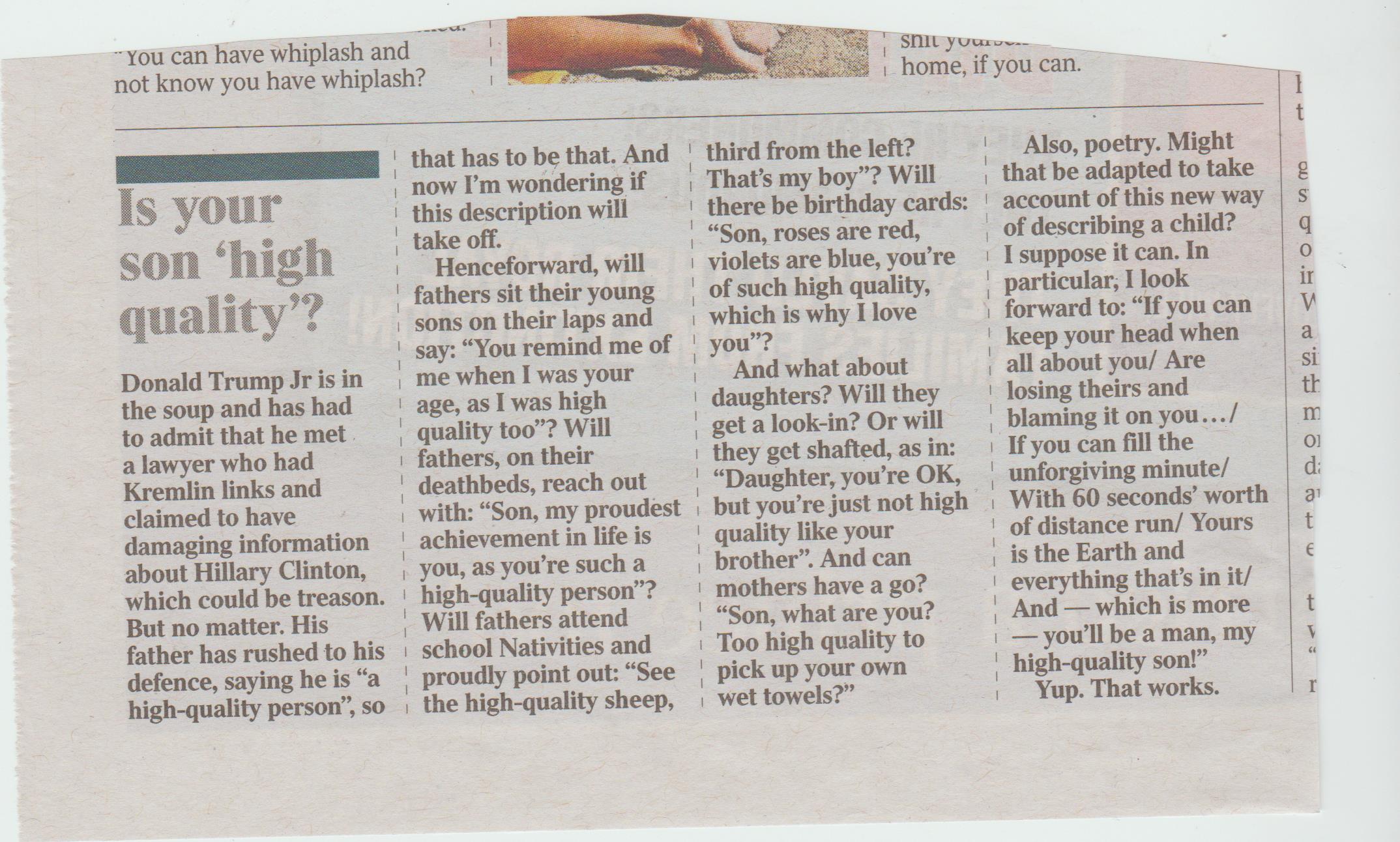 The Times, July 13, 2017
The Times, July 13, 2017
. . . and find that Ross is making mock of the phrase ‘high quality person’, not claiming it for her own son. If I were her, I would be cross. The least a sub (or executive) can do is to pay a columnist the courtesy of reading his or her copy.
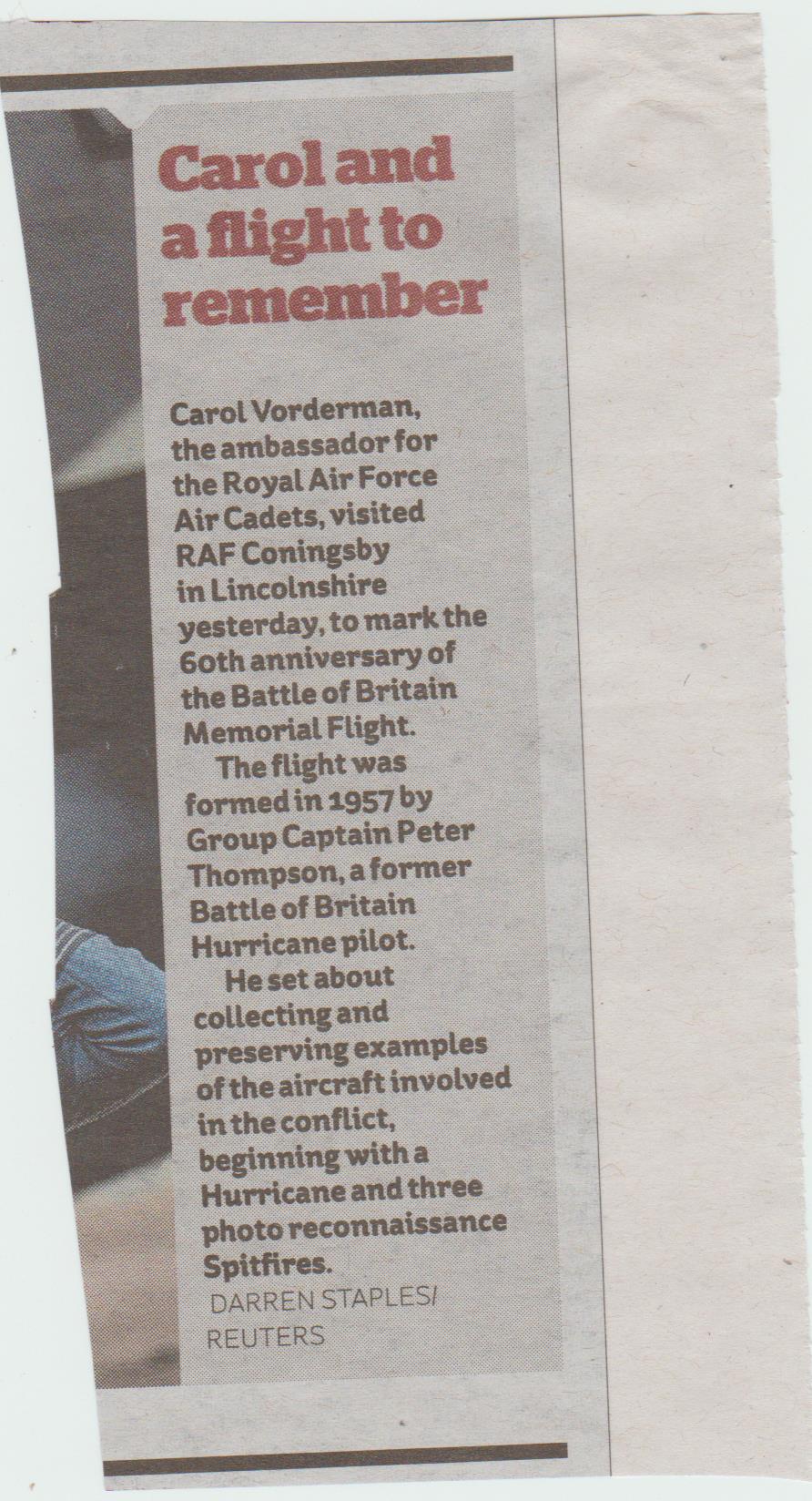 i newspaper, July 12, 2017
i newspaper, July 12, 2017
I simply cannot understand what, if anything, goes through the mind of someone who can let this story go without asking what aircraft the flight now operates. The answer, discovered in a few seconds fr0m the flight’s website, is six Spitfires, two Hurricanes, a Lancaster and a C47 Dakota. Yes, that would take a few extra lines, but there is a huge picture beside it showing not very much, so crop it a bit. There is no law saying that the story has to be that width.
Baffling.
PS No comma is needed after ‘yesterday’ in the first par.
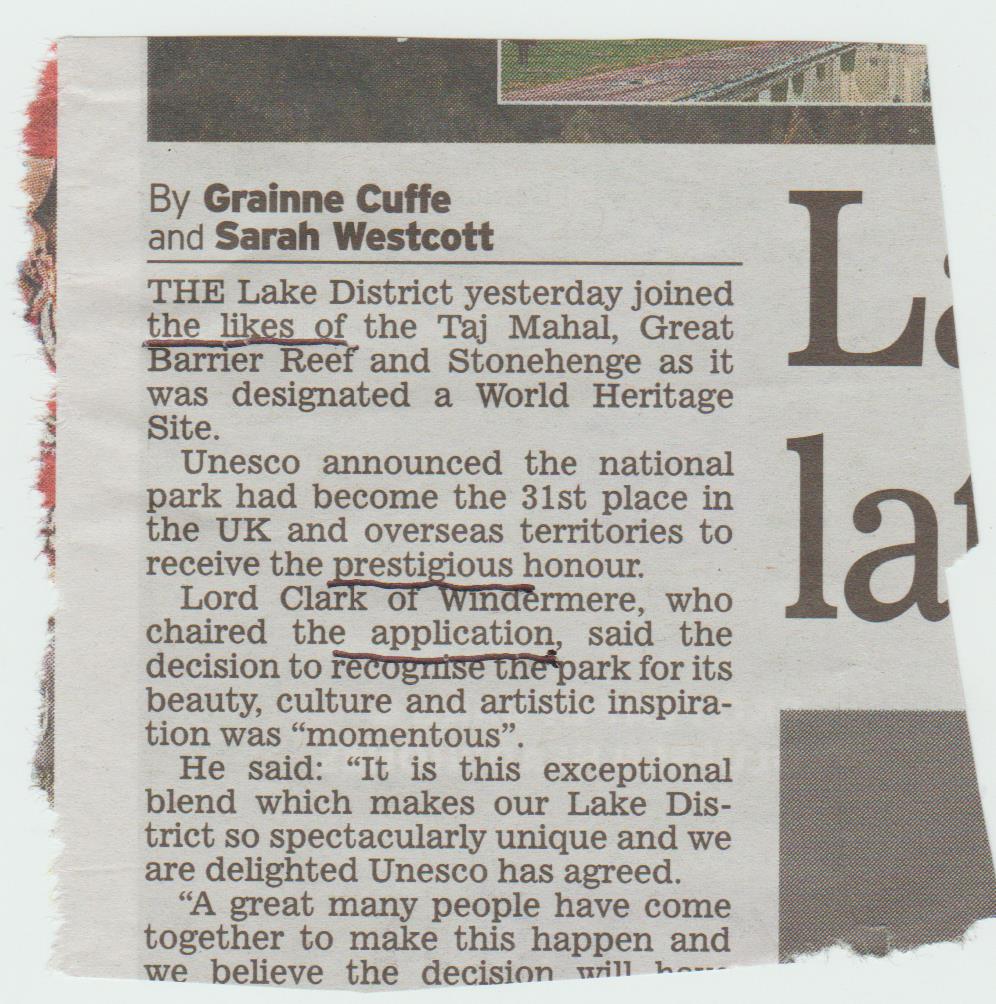 Daily Express, July 10, 2017
Daily Express, July 10, 2017
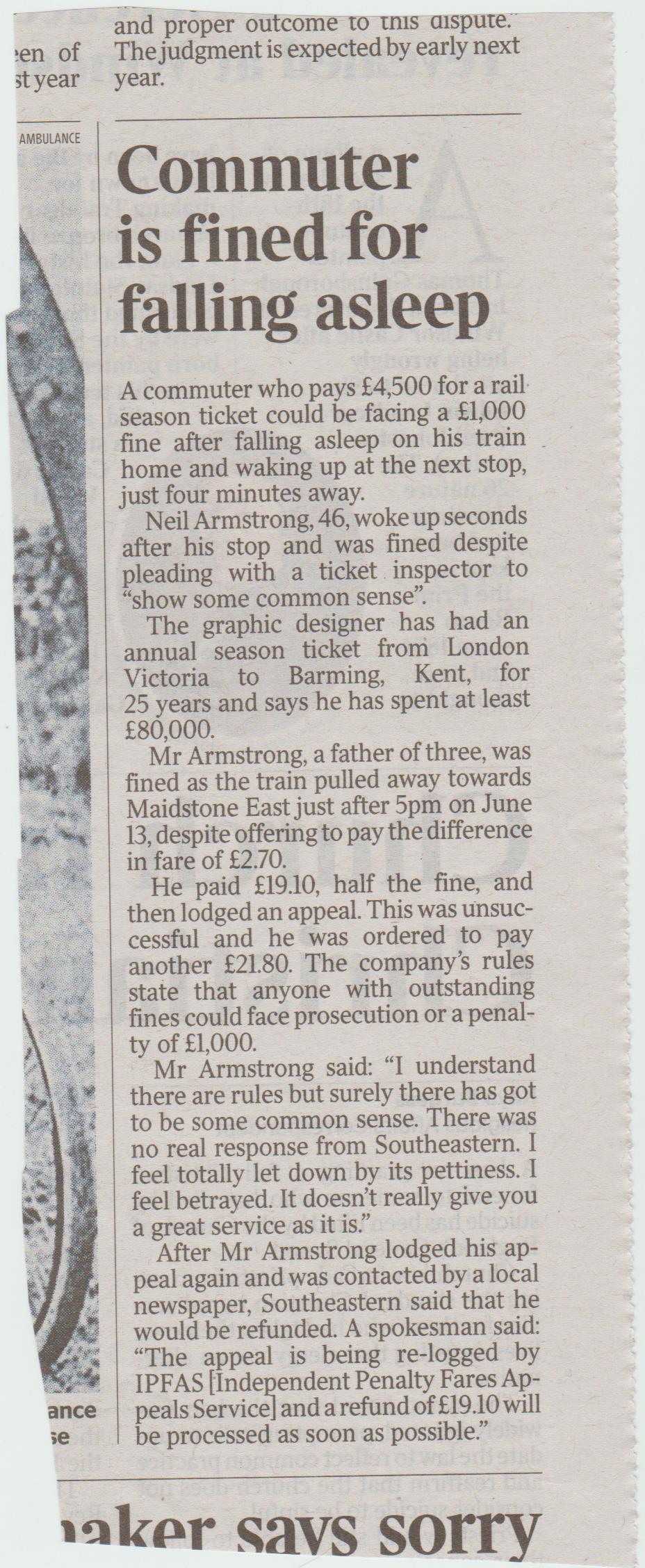 The Times, July 11, 2017
The Times, July 11, 2017
Never mind the commuter being asleep, the sub who handled this must have been. The intro is completely wrong, because the last par makes it clear that the man is being refunded and so he could not be facing a £1,000 fine. The way to do this is to say he was ‘threatened’ with the fine:
A commuter was threatened with a £1,000 fine after falling asleep on his train home . . .
I would leave the cost of his season ticket to the third paragraph.
This glaring lack of understanding makes me wonder if any human being is reading stories before they go in the paper.
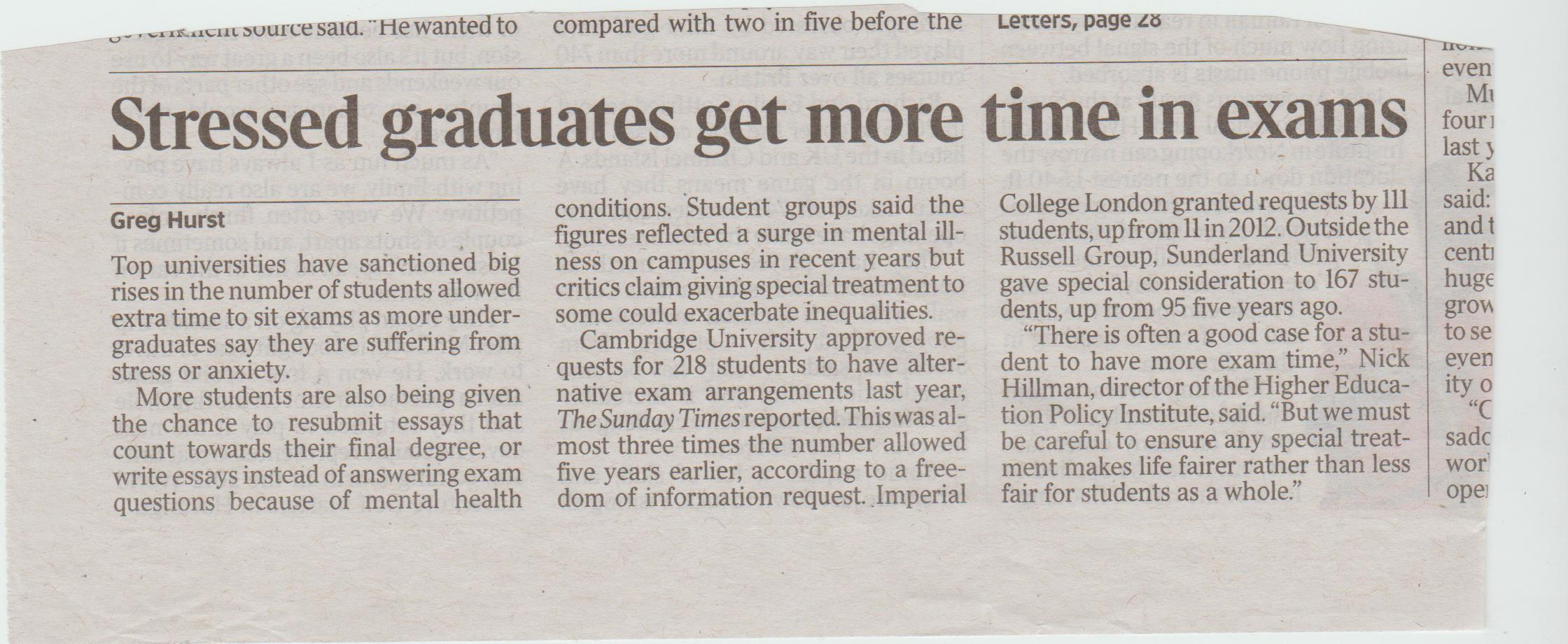 The Times, July 10, 2017
The Times, July 10, 2017
A surprising error in the Times. I would have thought everyone there knows that a graduate is someone who has passed his or her finals and gained a degree. This story is about undergraduates, who have not yet taken their finals. You can’t just drop the ‘under’ bit if it won’t fit. It would have been fine to use ‘students’ in the headline. The intro could have been:
Universities have sanctioned big rises in the number of undergraduates allowed extra time to sit exams as more complain that they are suffering from stress or anxiety.
I have taken out ‘top’ which is such a cliche, and with all respect probably does not cover Sunderland University, and avoided the repetition of students and undergraduates.
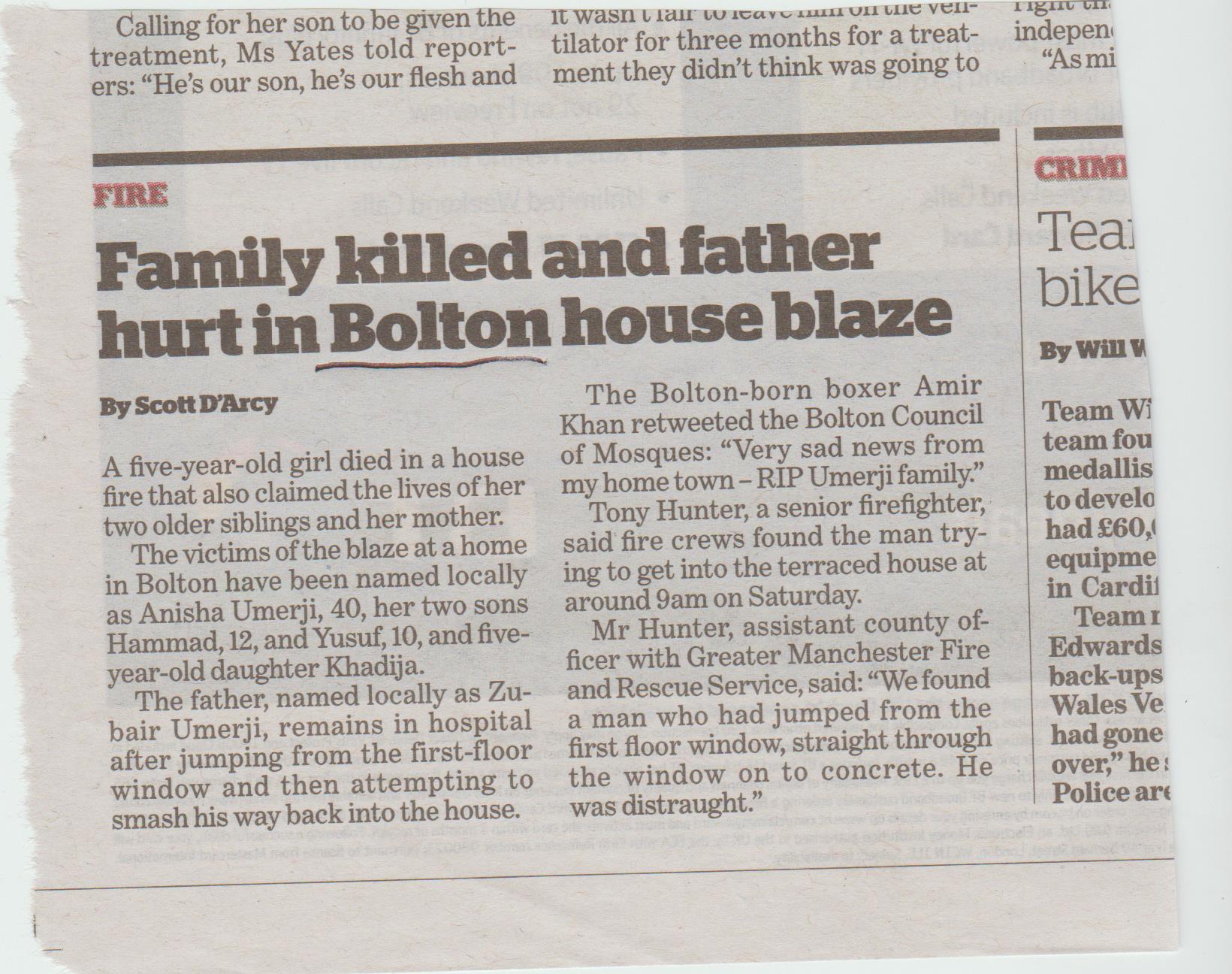 i newspaper, July 10, 2017
i newspaper, July 10, 2017
I’m pretty sure I have never seen Bolton in a national newspaper heading before. There is a good reason why seasoned subs would almost never put a place name (except possibly London) in a headline: you are telling the 99.99 per cent of your readers who have no connection with the place that the story is probably not of much interest to them. Very occasionally it would work, for example if the place name is perceived as amusing or if there is a striking contrast between the image of the place and the event, for example ‘The tramp from Tunbridge Wells’ or ‘The princess who worked in Bethnal Green market’. Bolton, however, is really not a name to conjure with.
Incidentally, why single out the five-year-old girl in the intro? And if you are going to do that, why use the awkward word ‘siblings’ instead of ‘brothers’? You do not need to repeat the girl’s age or the fact that there were two boys in the second par. The father’s efforts should come higher. I would say:
Three children and their mother died when fire swept through a terrace house. Their father is in hospital after trying to save them.
Incidentally, contrary to some authorities, I think it should be ‘terrace house’, not ‘terraced house’. The adjective ‘terraced’ refers to hillside land carved into steps for cultivation.
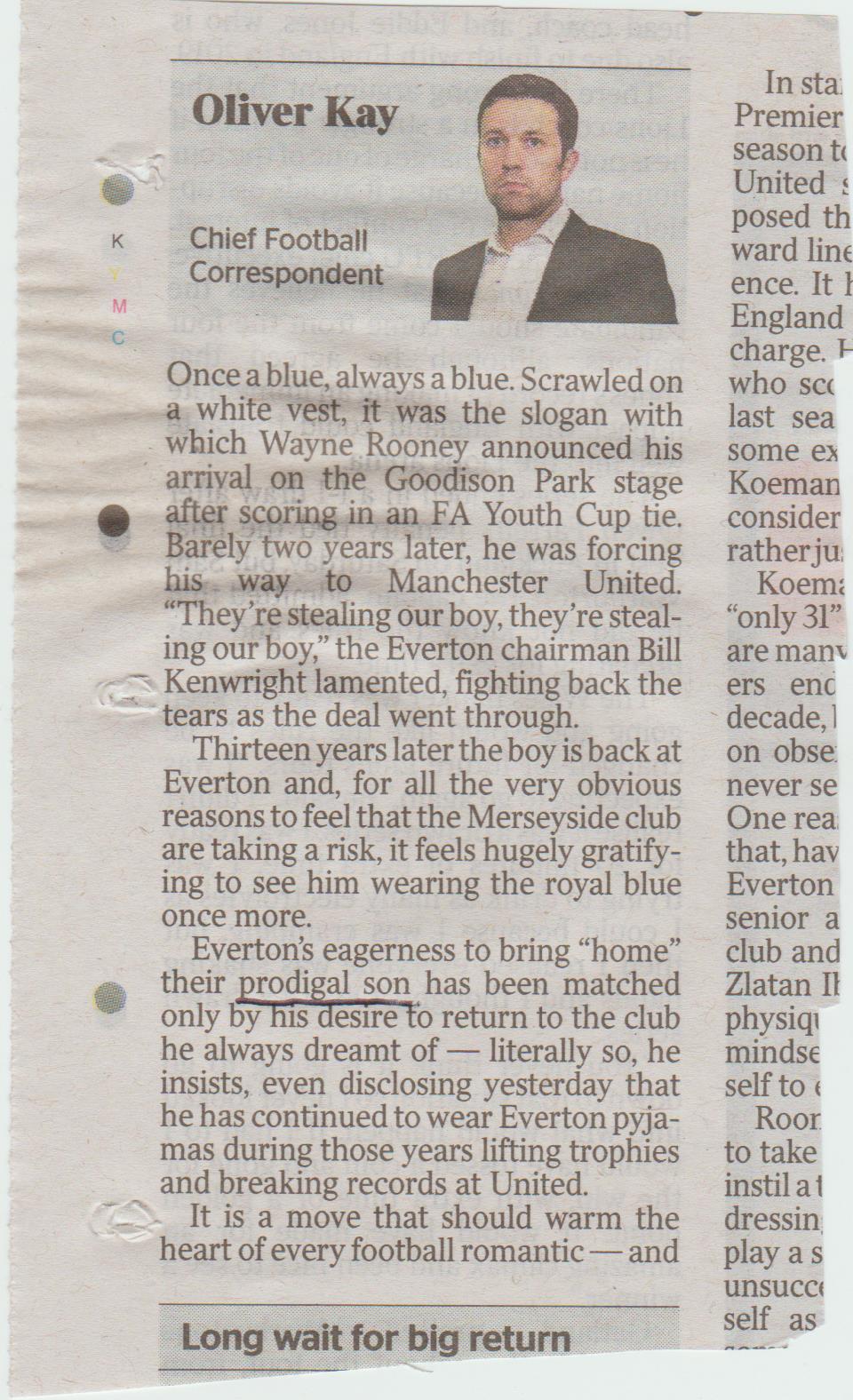 The Times, July 10, 2017
The Times, July 10, 2017
A common misunderstanding of the parable of the Prodigal Son in the Bible is that prodigal means someone who returns after a period of absence. The word actually means extravagant or profligate – the Prodigal Son came home only after he had run through his money. I doubt if this applies to Wayne Rooney.
 Daily Express, July 7, 2017
Daily Express, July 7, 2017